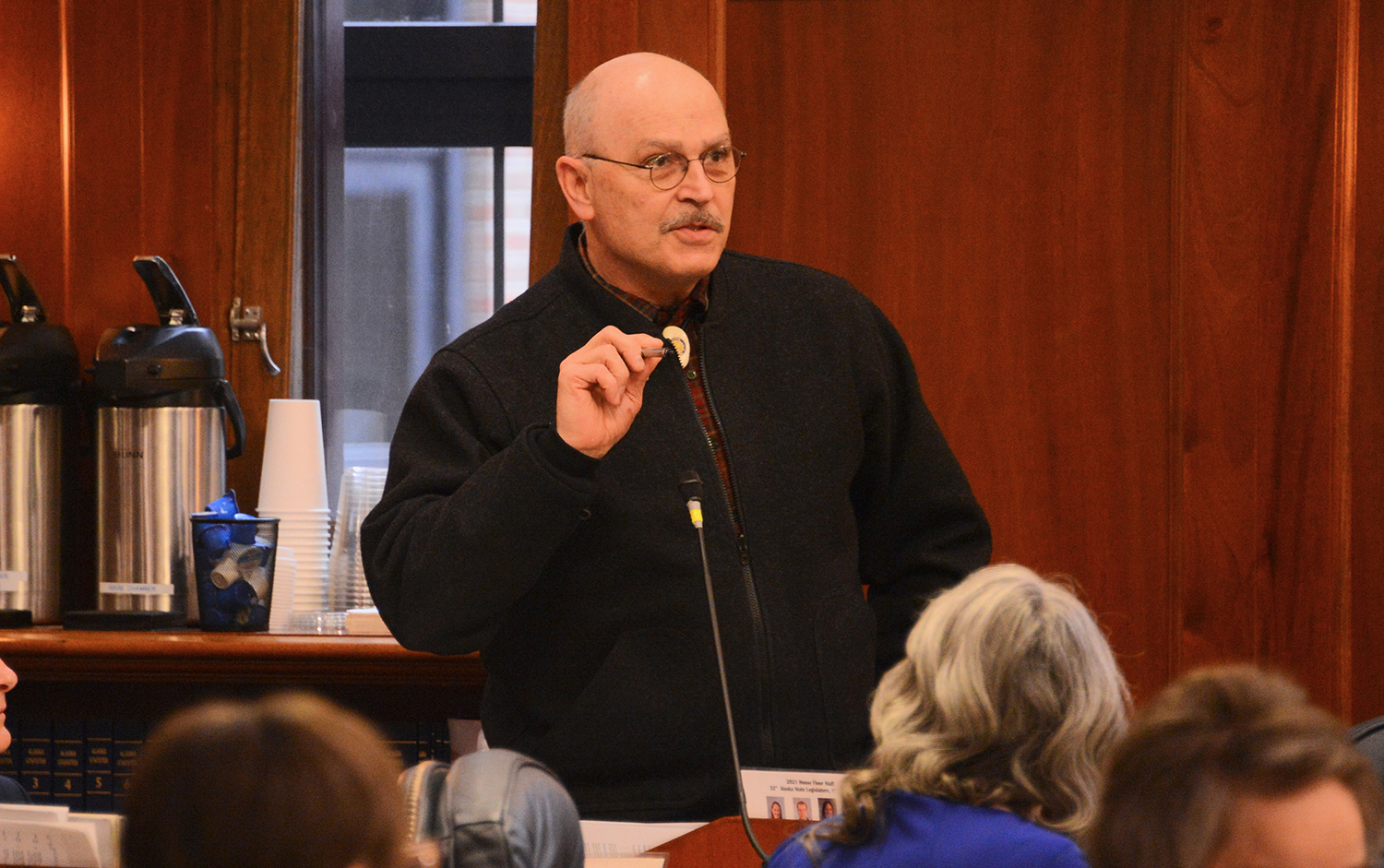
Longtime Republican Sen. Click Bishop of Fairbanks will not seek re-election this year and has indicated he is considering a run for governor in 2026.
Bishop’s decision highlights a wave of legislative retirements that will reshape the look of the state House and Senate and could decide who controls each part of the Legislature.
Included in the wave are Reps. Dan Ortiz, I-Ketchikan, Laddie Shaw, R-Anchorage and Jennie Armstrong, D-Anchorage.
Reps. Mike Cronk, R-Tok, Tom McKay, R-Anchorage, and Ben Carpenter, R-Nikiski, have announced they will not seek re-election and are running for the state Senate, which opens their House seats to competition.
In a written statement published May 29, Bishop announced that he would not run for re-election to the Senate but said, “My family and I are not done with public service. There is still a determination inside me to fix our current path of rising energy costs and the loss of our working-age population. It is clear that addressing those issues requires taking on a bigger role than serving in the legislature.”
Gov. Mike Dunleavy’s term expires in 2026, and the state Constitution prohibits him from running for a third term. Bishop has been frequently mentioned in the Capitol as a possible replacement.
“I’m sorry to see him not running,” said Senate President Gary Stevens, R-Kodiak, “But of course, I think there’s a chance he may run for governor in two years. And probably — if he intends to do that — he needs to not be in the Senate and get out and around the state and get better known.”
Bishop was a member of the Senate’s bipartisan supermajority, which included 17 of the Senate’s 20 members. Nine members of the supermajority are either not up for election this year or are running unopposed, and several additional members are heavily favored to win re-election..
Because 11 legislators are needed to maintain a majority, Bishop’s retirement won’t swing control of the Senate, even if he were replaced by a non-coalition-minded lawmaker.
On the same day as Bishop’s announcement, Ortiz announced his decision to not seek re-election, partially due to health reasons. The announcement was first published by the Ketchikan Daily News.
Ortiz is still listed as a candidate by the Alaska Division of Elections, but said on Sunday that he likely will withdraw before the late-June deadline to do so. While his decision is not 100% final, he said he is very unlikely to change his mind.
Ortiz said he was advised to retire by his medical provider, who was advised by a specialist that if Ortiz wanted to prevent a chronic condition from developing, he should reduce the stress in his life.
“It was a hard decision,” he said. “I regret that I won’t be able to stay in the fight to advance some of the bigger interests that I have … solid education funding, advancing improvement on the Marine Highway System, I think the arguments for defined benefits for public employees, all those things are really important to me. And I feel the most regret in that I won’t be around to have a direct role in how those eventually move forward.”
Ortiz said that at this time, he isn’t endorsing any of the three candidates vying to replace him.
Those are Republican Jeremy Bynum and nonpartisans Grant Echohawk and Agnes Moran.
“I know that all three candidates have a base of support, at least in the community of Ketchikan. And it’ll be interesting to see how that all unfolds,” Ortiz said.
As a legislator, Ortiz has preferred to caucus with the House’s predominantly Democratic minority. But his district tends to vote for Republican presidential candidates, and because Alaskans tend to match their legislative votes with their presidential ones, his seat is likely to swing Republican, giving a boost to the predominantly Republican House majority caucus.
“The area leans conservative — or at least Republican — and so we have hopes that Jeremy will do well,” said Speaker of the House Cathy Tilton, R-Wasilla.
In south Anchorage, Shaw’s retirement has encouraged a four-way race in House District 9, with three Republicans and one nonpartisan candidate registered.
Tilton said she’s sorry to see him go, and that she’ll be watching that race closely, as well as the race in House District 36, where Cronk declined re-election in order to run for Bishop’s Senate seat.
Six candidates have filed to run for Cronk’s seat in the House, making it the most competitive legislative race this year, as judged by the number of candidates.
“It was real quiet, and then all of a sudden, there were a whole lot of folks who got involved,” Tilton said.
In Anchorage, Armstrong won election to the House in 2022 but said earlier this year that she would not run for a second term. She declined to speak publicly about the reasons for her decision.
Democratic candidate Carolyn Hall ran unopposed for the seat until nonpartisan candidate Nick Moe registered as a second option shortly before Saturday’s entry deadline.
The deadline for candidates to withdraw from the August primary election is June 29, and the election is Aug. 20.




